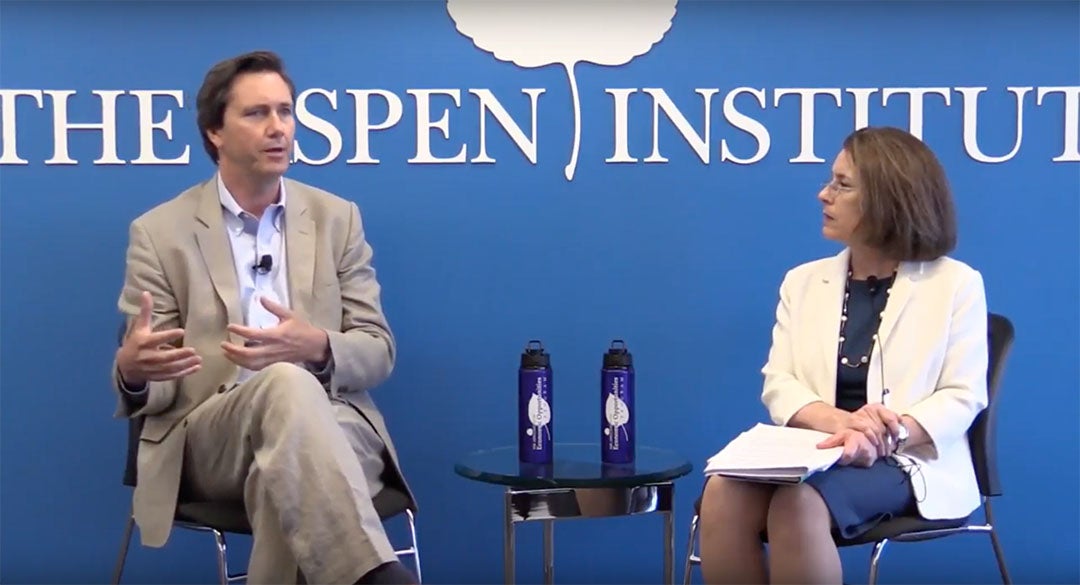The link between work and wealth is being severed says Maureen Conway, executive director of the Institute’s Economic Opportunities Program. Rick Wartzman agrees. His new book, The End of Loyalty, examines the erosion of the social contract between employers and employees in America over the last six decades. He joined the Aspen Institute to discuss his findings with Neil Irwin, senior economics correspondent for The New York Times.
The End of Loyalty tells the story of four iconic American corporations — General Motors, General Electric, Kodak, and Coca-Cola. Wartzman began by chronicling what he calls the “Golden Age” of the 50s and 60s, but first offered a major caveat. “I should say it was a ‘Golden Age’ with an asterisk,” he said. “It was a golden age mainly for white men in the workforce. There were incredible amounts of blatant discrimination for people of color and women.”
Those who benefited from company policies enjoyed job security, decent wages, health care, and retirement security. One reason behind this is that it was in the self-interest of the company to provide good jobs. Corporate executives recognized that putting enough money in people’s pockets helped fuel the consumer economy. Wartzman also credits the fulfillment of the social contract to the collective bargaining efforts of labor unions.
Many experts have singled out automation, globalization, or the decline of unions as the primary reason that good jobs have become harder to find. Wartzman says that they have all played a role. These factors and the 1970s recession led to a corporate business model centered around maximizing value for shareholders — one that is still in use today.
When asked to explain cuts made to wages, health care packages, and pensions, many executives argue that such things were necessary in order to keep their organizations afloat. They point to the bankruptcies of companies like Kodak and General Motors as justification. Is there a tradeoff between having a well-run company and fair labor practices?
When Donald Trump campaigned around the country, he focused his appeal on workers who felt displaced by today’s economy. NAFTA was one of the top targets of his ire. While Wartzman agrees that NAFTA hurt some communities, he believes its overall impact on the economy was positive. “I don’t think we can stop big forces like globalization, automation, or the shift to knowledge work,” he said. “Nor should we try. Over time, they should grow the pie.”
This will not happen without the intervention of both public policy changes and corporate solutions. Corporations need to be long-term oriented and take a more balanced stakeholder-approach. Additionally, we should invest in education and skills training that can help reintegrate people into the workforce. While we cannot return to a previous golden age, we can work together to create a new one for American workers.


